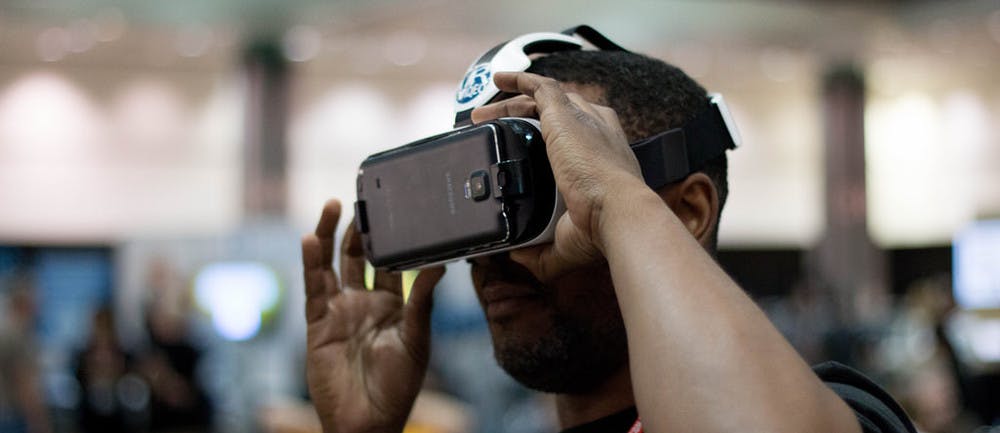Augmented reality is growing quickly and is likely to have a major impact on the future of shopping. While virtual reality is a term that is more well-known and has been around for longer, AR is starting to catch up.
A marker of the potential of AR can be seen in the number of Silicon Valley venture capital deals that have been done. CB Insights claim that 22% of all Silicon Valley investment is going to AR projects.
The potential implications for e-commerce are huge.
Amazon, the biggest e-commerce retailer on the planet published a patent on AR Presentation. The illustration shows users' "trying on" watches in AR as they shop online and give a big hint of what’s to come from the company in the future.
Exciting future ahead
The market for AR products is projected to grow 80% by 2024. That would make the market worth around $165bn with sectors such as engineering and medicine seeing uses for the technology.
However, in the e-commerce world many have asked if AR will simply be a fight between Amazon and smaller start-ups and retailers?
If smaller businesses are to succeed and win market share in the ecommerce world of AR, creative solutions will be key. For brands and influencers, new AR tools such as Blendar, are emerging, making it easy to deliver more engaging experiences for their buyers.
In the future of e-commerce, Augmented reality will have a huge impact on how products are purchased online, and if you think that consumers are not going to be that into AR, here are some interesting stats that might make you think again.
Here’s how AR is already revolutionizing online shopping:
- 77% of shoppers want to use Augmented Reality to see product difference such as a change in colour or style.
- 61% of shoppers prefer to shop at stores that offer augmented reality than those who don’t, and digital interactions influence 36% of all spending in a physical store.
- 22% of shoppers return items because they look different from the online store.
A couple of examples of real world businesses that are already utilising Augmented Reality are Sephora Virtual Artist and Amikasa.
Sephora Virtual Artist allows consumers to try different makeup looks, match outfits with makeup and follow virtual makeup tutorials. The tool lets people try and then buy the makeup that looks best by trailing it first. It creates an enjoyable shopping experience and helps consumers feel happy with their purchases reducing refunds.
Amikasa is another great AR ecommerce tool that lets you bring furniture from real brands into your home. Shoppers can recreate their home, change an item’s colours and view furniture as if it’s actually in your home to see how it looks. It is easy to see how this is a major advantage over buying a large sofa or cabinet, getting it delivered and realising it doesn’t fit or look right in the space.





